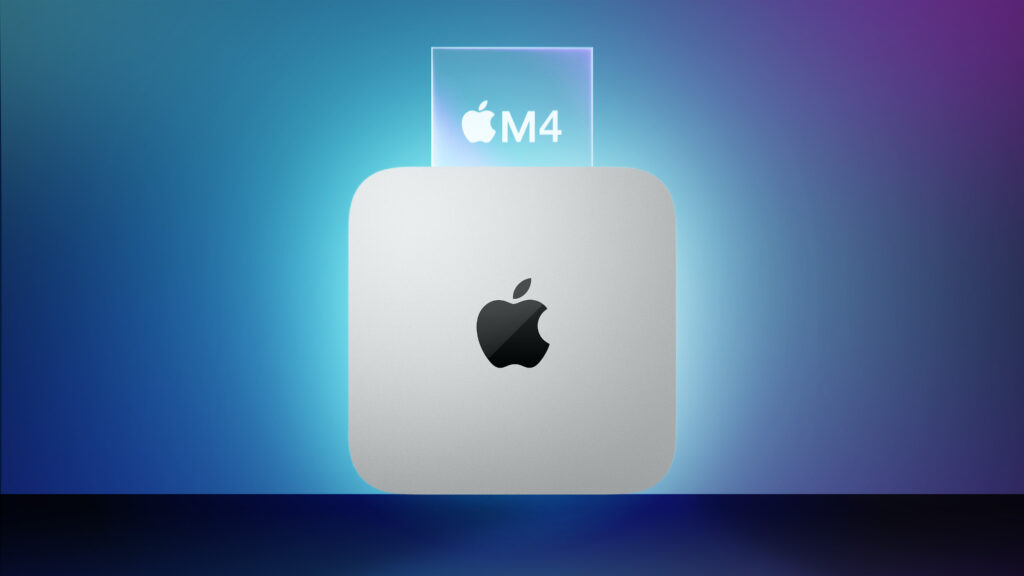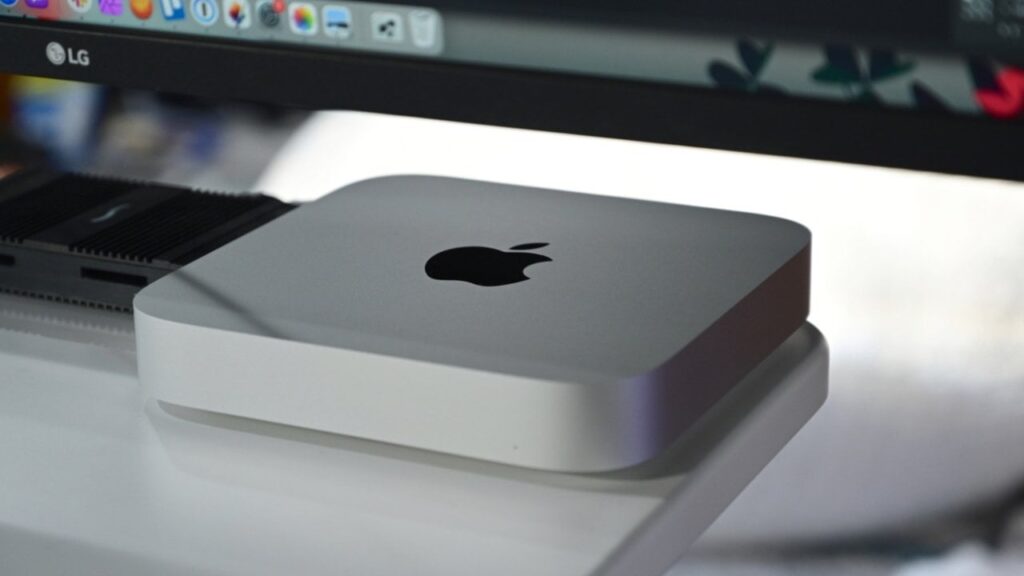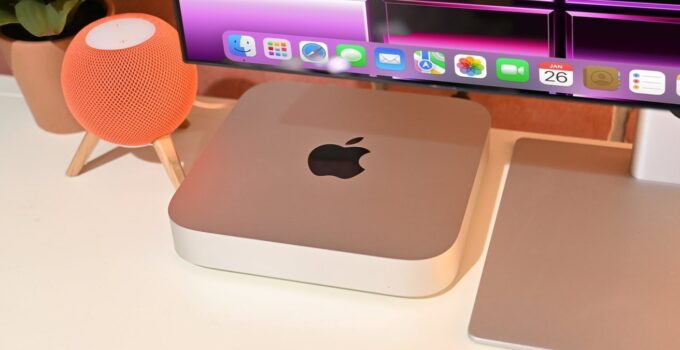Mac Mini Leaps to M4: Skipping the M3 Chip. Apple’s strategy for its Mac mini lineup appears to be taking a leap towards more substantial upgrades, bypassing the M3 chip for a more advanced M4 chip. This move, detailed by tech analyst Mark Gurman, suggests an accelerated pace in Apple’s hardware development, focusing on delivering more powerful and efficient devices.
Asus ProArt Display PA348CGV: A Grand Canvas for Professionals
The Mac mini, a favorite for its compact design and robust performance, last saw an update in January 2023, when it was equipped with the M2 and M2 Pro chips. This upgrade brought significant enhancements including additional Thunderbolt 4 ports, an HDMI 2.1 port in M2 Pro configurations, as well as Wi-Fi 6E support and Bluetooth 5.3 capabilities, marking it as a considerable improvement over its predecessors.

Gurman’s insights from his latest “Power On” newsletter highlight that Apple plans to roll out new Mac mini models with the M4 and M4 Pro chips by late 2024 or early 2025. This timeline suggests that there won’t be a Mac mini featuring an M3 chip, indicating that Apple is setting the stage for a more significant upgrade directly to the M4 series.
This decision to skip an entire chip generation is not without precedent. For instance, the iMac series skipped the M2 chip, opting instead for a significant performance enhancement with the M3 chip introduced later. Such strategic choices reflect Apple’s aim to ensure each new model delivers a meaningful improvement in performance and features.
The forthcoming M4 chips are expected to provide a considerable boost in CPU performance over the current M2 series. More than just a simple speed enhancement, the M4 series is rumored to include a faster neural engine specifically designed to accelerate AI tasks, aligning with the growing demand for more capable AI applications.
Apple’s focus on enhancing AI capabilities in the Mac mini aligns with industry trends where artificial intelligence and machine learning are becoming increasingly integral to consumer technology. This shift is not merely about keeping up with competitors but is aimed at setting new standards in how compact desktops can be used for advanced computing tasks.
The potential introduction of the M4 chip in the Mac mini could also bring about improvements in energy efficiency, an aspect that is becoming increasingly important to both consumers and corporate users. With a more efficient chip, users can expect better thermal management and lower energy consumption, which is critical for the environmentally conscious market.
Moreover, this upgrade path could influence the broader ecosystem of Apple products. Integrations with other Apple services and hardware could be enhanced, providing a seamless user experience across devices from iPhones to iPads, and beyond.

As we approach the expected unveiling of the new Mac mini, the anticipation builds not only for the specific improvements it will bring but also for how it will fit into the larger Apple universe. Will the new Mac mini serve as a hub for a smart home, or will it find its place in professional studios requiring high computational power?
Overall, while the skip of the M3 chip in the Mac mini lineup might surprise some, it underscores Apple’s commitment to making significant leaps in technology. This approach ensures that each new release is not just an incremental update but a substantial upgrade that enhances users’ interaction with technology in meaningful ways.
